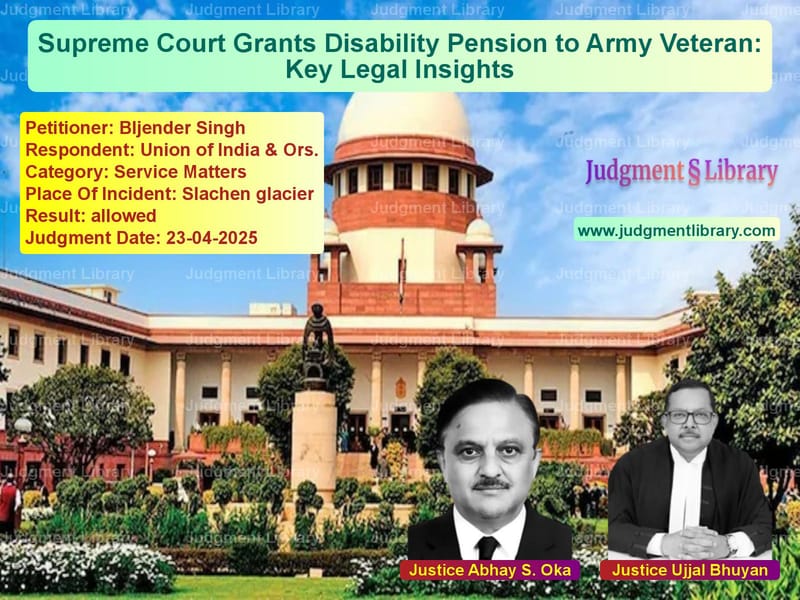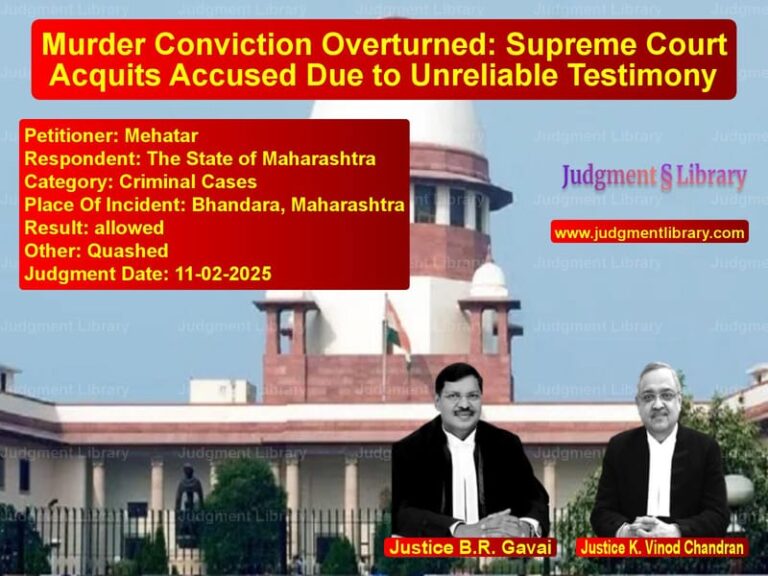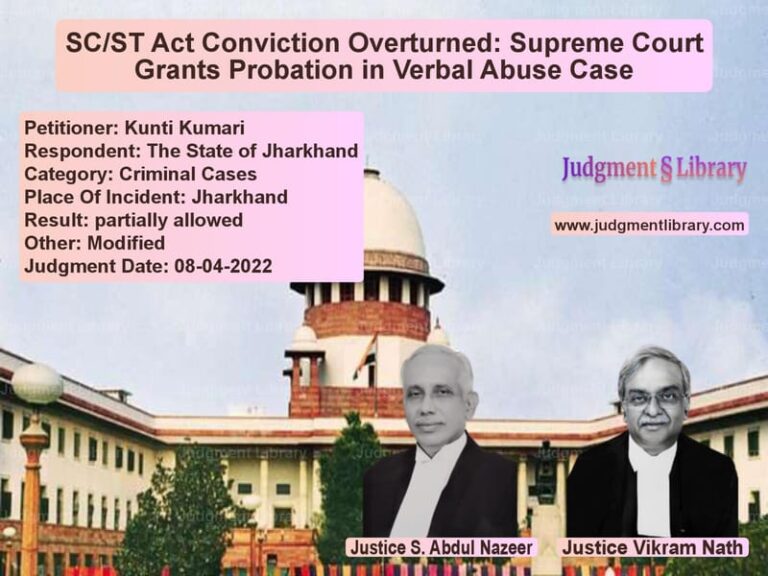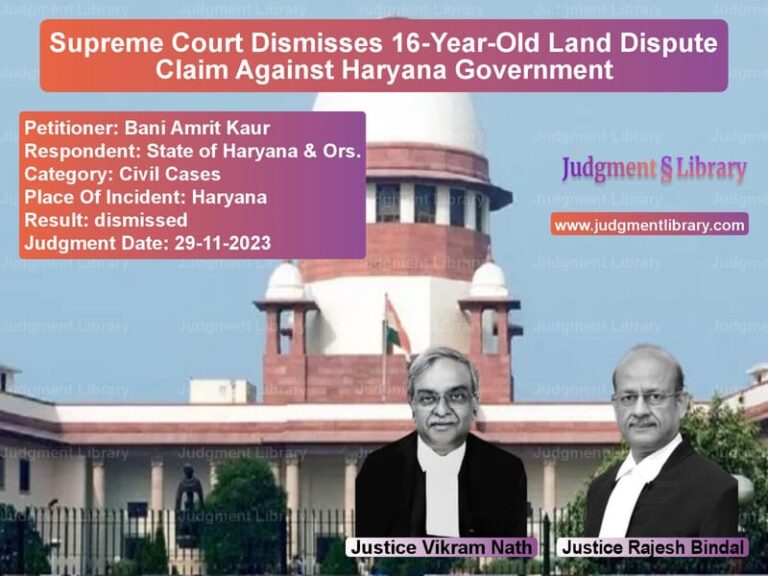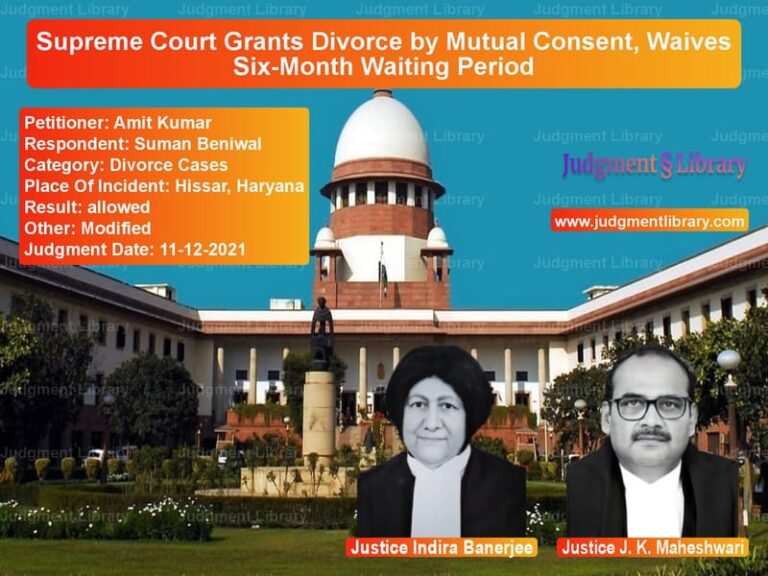Supreme Court Grants Disability Pension to Army Veteran: Key Legal Insights
The Supreme Court of India recently delivered a significant judgment in the case of Bljender Singh versus Union of India & Ors., addressing the critical issue of disability pension for armed forces personnel. The case revolved around the denial of disability pension to an army veteran who was invalided out of service due to a medical condition. The court’s decision not only highlights the legal principles governing such cases but also underscores the importance of protecting the rights of those who serve the nation.
The appellant, Bljender Singh, was enrolled in the Indian Army on 30.09.1985 and was invalided out of service on 14.08.1989 due to a medical condition described as ‘generalized tonic clonic seizure old 345 V-67.’ The Invaliding Medical Board assessed his disability at less than 20% and opined that it was not attributable to or aggravated by military service. Consequently, Singh was denied the disability element of his pension, leading to a prolonged legal battle that culminated in the Supreme Court.
The core issue before the court was whether Singh’s disability, which led to his discharge, should be deemed attributable to military service, given that no note of the condition was made at the time of his recruitment. The court examined the relevant provisions of the Pension Regulations for the Army, 1961, and the Entitlement Rules for Casualty Pensionary Awards, 1982, to arrive at its decision.
One of the key arguments presented by Singh’s counsel was that the disease which led to his discharge should be presumed to have arisen during service, as there was no record of it at the time of his enrollment. The counsel relied on Rule 14(b) of the Entitlement Rules, which states that a disease leading to discharge will ordinarily be deemed to have arisen in service if no note of it was made at the time of recruitment. The counsel also cited several precedents, including Dharamvir Singh vs. Union of India and Rajbir Singh vs. Union of India, to support this contention.
The respondents, represented by the Union of India, argued that the disability was assessed at less than 20% and was neither attributable to nor aggravated by military service. They emphasized that the Medical Board’s opinion should be given due weight and that Singh had not provided sufficient evidence to rebut this finding.
The Supreme Court, in its judgment, meticulously analyzed the legal framework and the facts of the case. The court reiterated the principles laid down in earlier judgments, emphasizing that a member of the armed forces is presumed to be in sound physical and mental condition at the time of entry into service unless noted otherwise. Any deterioration in health leading to discharge must be presumed to be due to military service unless proven otherwise by the employer.
The court also highlighted the beneficial nature of disability pension provisions, which must be interpreted liberally to protect the interests of armed forces personnel. It noted that the burden of proving that a disability is not attributable to or aggravated by military service lies entirely on the employer. In this case, the Medical Board had failed to provide reasons for its opinion that the disease could not have been detected at the time of recruitment, which vitiated its findings.
In its concluding remarks, the court stated, “Thus having regard to the discussions made above, we are of the considered view that the impugned orders of the Tribunal are wholly unsustainable in law. That being the position, impugned orders dated 22.01.2018 and 26.02.2016 are hereby set aside. Consequently, respondents are directed to grant the disability element of disability pension to the appellant at the rate of 50% with effect from 01.01.1996 onwards for life.”
The judgment serves as a reminder of the legal protections available to armed forces personnel and the judiciary’s role in ensuring their rights are upheld. It also underscores the importance of adhering to procedural requirements and providing reasoned decisions in matters affecting the welfare of service members.
Petitioner Name: Bljender Singh.Respondent Name: Union of India & Ors..Judgment By: Justice Abhay S. Oka, Justice Ujjal Bhuyan.Place Of Incident: Slachen glacier.Judgment Date: 23-04-2025.Result: allowed.
Don’t miss out on the full details! Download the complete judgment in PDF format below and gain valuable insights instantly!
Download Judgment: bljender-singh-vs-union-of-india-&-ors-supreme-court-of-india-judgment-dated-23-04-2025.pdf
Directly Download Judgment: Directly download this Judgment
See all petitions in Pension and Gratuity
See all petitions in Employment Disputes
See all petitions in Public Sector Employees
See all petitions in Judgment by Abhay S. Oka
See all petitions in Judgment by Ujjal Bhuyan
See all petitions in allowed
See all petitions in supreme court of India judgments April 2025
See all petitions in 2025 judgments
See all posts in Service Matters Category
See all allowed petitions in Service Matters Category
See all Dismissed petitions in Service Matters Category
See all partially allowed petitions in Service Matters Category

